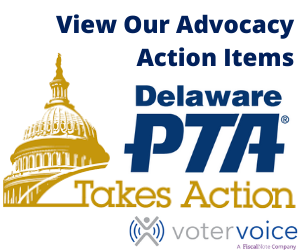We recently came upon this article when one of our friends from NJ PTA shared it. This article really echos what we tell families all the time – – PTA is not about bake sales and fundraisers. We are an advocacy organization and we advocate for all children with one voice. All we ask from our families is that they stay informed!
PTA meetings invariably take place on evenings when you’re either fighting a killer headache or racing to make a deadline at work. They’re easy to ignore, particularly if they are poorly attended and don’t seem to impact your child’s education or overall school quality. There may, however, be more going on in the auditorium during those meetings than parents think. Should today’s busy moms and dads make PTA meetings a priority?
What is the PTA? – Most people don’t realize that theParent Teacher Association is a national, non-profit organization served by local affiliates in each state. The power of the PTA is realized not only at the school level but also in Washington, D.C., where the needs of students are fought for in the halls of Congress and the Senate. The PTA was founded over 100 years ago and currently has over six million members, representing a considerable amount of harnessable power and influence.
Where do PTA dues go? – The lobbying efforts of the PTA are fueled largely by dues parents are asked to cough up at meetings, although these are also used to fund the needs of each school directly. Comprised of more than just moms who love bake sales, the PTA is actually an involved body of volunteers bound by a determination to serve students. PTA funds soften the edges of the budget constraints many schools currently face, supplying funding for everything from music programs to computers and playground equipment. Large, vocal PTAs willing to bring in funds and be involved are typically part of the decision-making body deciding where funding will go and which programs will benefit.
Why should parents join? – There’s an old adage; if you’re not part of the solution, you’re part of the problem. One way parents and other guardians can get involved in their child’s school is by attending PTA meetings regularly, whether they are able to pay the voluntary dues requested or not. Staying involved with the PTA not only informs parents of school and state-based concerns but also allows them an opportunity to voice their own issues on topics ranging from a lack of updated textbooks to bullying. It gives parents a voice about funding, allowing them to advocate for programs important to their own children, such as art or technology. It also supports the establishment of a solid community and communication between school officials, teachers and other parents, allowing issues to come to the forefront where they can be discussed and resolved. PTAs also provide a viable forum for outside experts and local political leaders who can be invited to address, educate and also learn from those in attendance.
How children benefit – As hard as it may be to leave the dirty dinner dishes in the sink to get to the meeting on time, parental involvement in the PTA strongly shows children their parent’s willingness to be outspoken advocates on their behalf. It solidifies for children the need to respect their school as well as their own right to respectfully voice concerns and issues. Seeing parents involved in this way is very powerful for children, who benefit from witnessing pro-active, role-model behavior.
As with most things in life, the more you put in, the more you can take out. PTA involvement supports your child’s school as well as the educational growth of each child attending, but is only as strong as the parents attending meetings. If your child’s school already has a PTA, come to a meeting and bring your ideas and concerns with you. If there is no PTA, consider being the leader who gets one started. The more involved parents are, the better off children become.
Corey Whelan is a freelance writer in New York. Her work can be found at Examiner.com.




